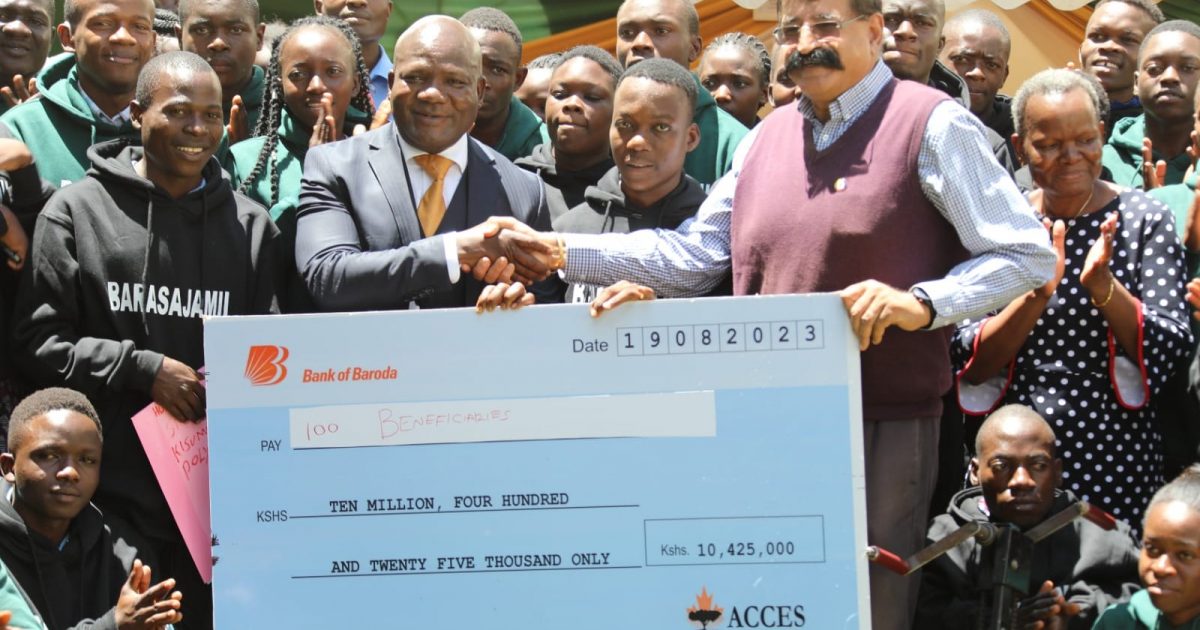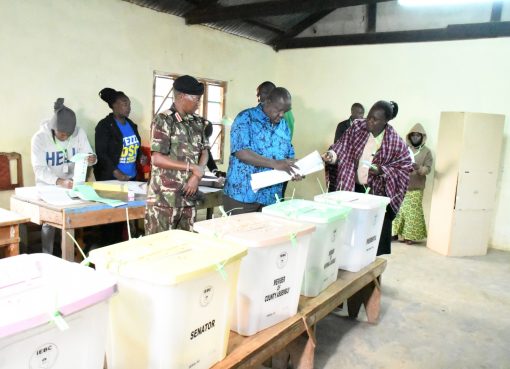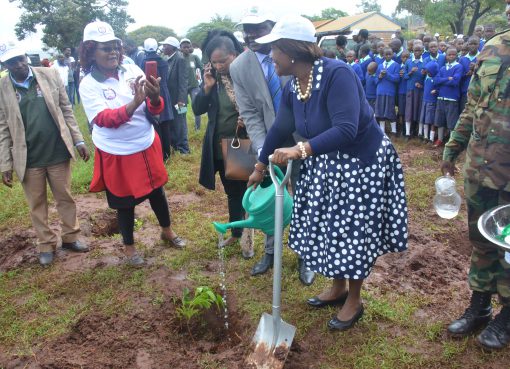The African Canadian Continuing Education Society (ACCES) in Kenya, in partnership with Kakamega County Government, will spend Sh41.7 million to sponsor 100 students to pursue higher education for a period of four years.
The organisation has released an initial cheque of Sh10,425,000 for the selected students to join universities and colleges of their choice.
“For a period of 30 years, ACCES Kenya has sponsored over 4000 bright but needy students from Western Kenya to undertake their studies, and an alumni foundation has been established to support incoming scholars,” said Kakamega Governor Fernandes Barasa.
Speaking during the handing over of the Sh10.4 million cheque, Barasa noted that this offers scholarships to 100 students every year, with this year’s cohort consisting of 63 students from Kakamega and a total of 37 from Bungoma, Busia, and Vihiga Counties.
“A total of 937 students applied for the scholarship, of which the selection panel shortlisted 250 and settled on 100 after a rigorous exercise. Currently, there are 11 students from Kakamega County supported by the scholarship programme pursuing higher education in foreign countries,” he added.
Barasa thanked ACCES Kenya for providing an opportunity for needy students to pursue their education and realise their dreams.
He challenged the beneficiaries to utilise the opportunity to become a shining light of Kakamega County and the entire region, reminding them that job opportunities are always available for the best in society.
“We live in an extremely competitive world, but these young people with us today are already on the better side of that competition,” he noted.
The governor said that in addition to the scholarship, which will now be known as the Barasa Jamii Community Scholarship, the Kakamega County government supports 12 students, one from each sub-county, with full scholarships throughout their university studies.
“This has been a way of not only supporting bright and needy students but also a way of building reliable, well-trained manpower in medicine, engineering, and information technology. As a government, our vision is to create a sufficient pool of employable young people who will contribute to the development of this country,” he explained.
Barasa said the county government will continue to support the scholars until the end of their studies while calling for more partners to join hands through a Memorandum of Understanding to support the county’s development programmes.
The governor also urged the national government to consider devolving primary and secondary education. “We have been having a conversation, and one of the things we have asked is for consideration to devolve primary education and also secondary education because we are the ones on the ground and we feel the heat and the pinch of those vulnerable families,” he noted.
Barasa pointed out that in education, county governments are mandated to take charge of polytechnics and early childhood development centres (ECDE), but counties have in some cases had to support students in primary, high school, and tertiary institutions.
He therefore called on the University Funding Board and the Higher Education Loans Board to provide a fair opportunity so that deserving students get opportunities to learn.
“We all know that the government has changed the funding model for higher education, and we know there is a lot of anxiety in the pioneer group as they are not sure of how the information they are giving will translate into bursaries and scholarships,” he explained.
The Chair of the ACCES Kenya Advisory Board, Pape Sembi, said the organisation is celebrating 30 years of helping people in need and calling for more partners to join hands to support students access to education.
By Moses Wekesa




